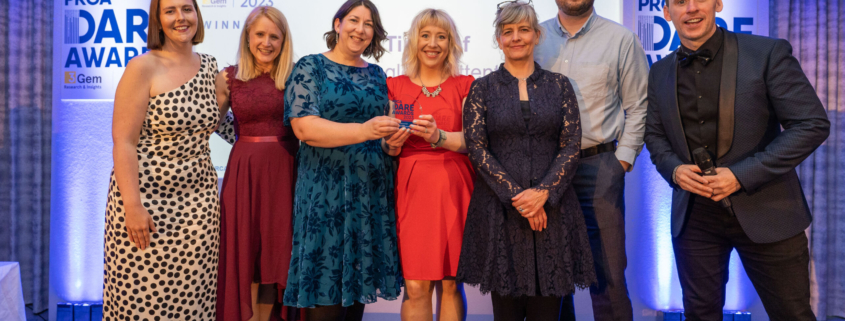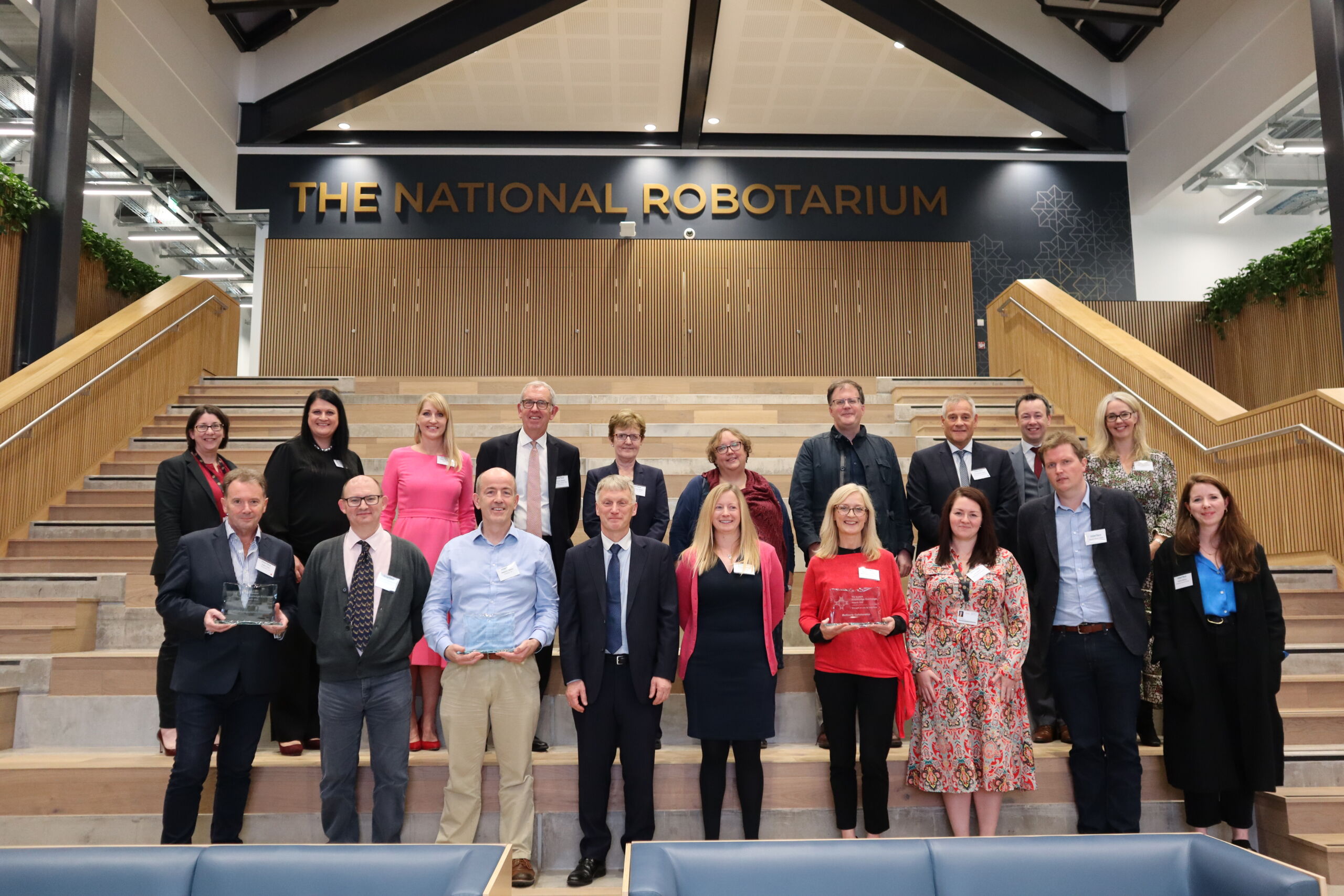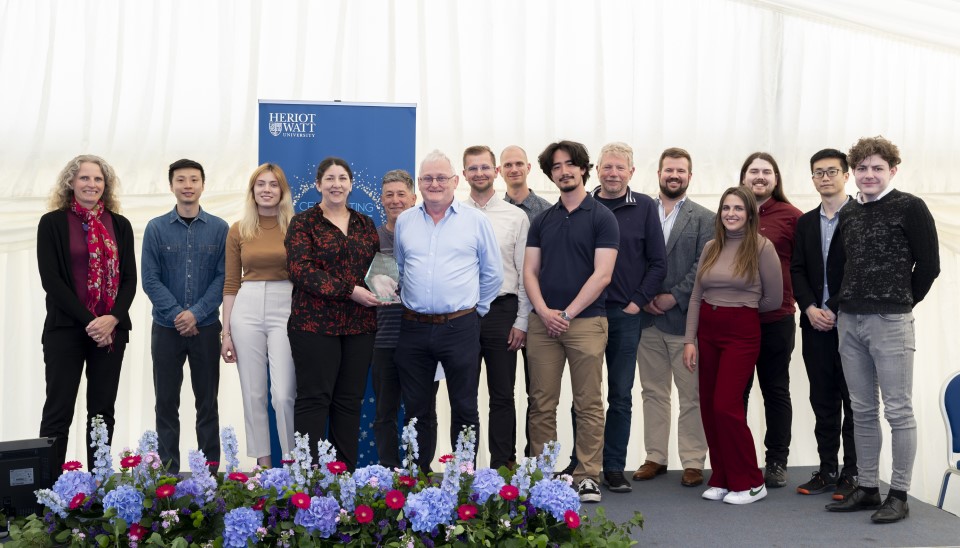UNITE project Highly Commended at Scottish Knowledge Exchange Awards
The UNITE project, an EPSRC Prosperity Partnership programme spearheaded by The National Robotarium and Heriot-Watt University in collaboration with Imperial College London, was Highly Commended in the Multi-party Collaboration category at the 2025 Interface Scottish Knowledge Exchange awards.
The project team, which includes global geo-data specialists Fugro and Heriot-Watt spinout technology company Frontier Robotics, is developing advanced AI and autonomous systems for undertaking remote inspections of offshore wind farms to offer a safe, efficient and sustainable solution for global energy providers.
Picking up the prize on the night from Minister for Business, Richard Lochhead MSP was Project Manager, David Morrison, Director and Co-Founder of Frontier Robotics, Jonatan Scharff Willners, Head of the Robot Motor Intelligence (RoMI) lab, Dr Carlos Mastalli and postdoctoral student Hefan Wang.
Yvan Petillot, Professor of Robotics at Heriot Watt University and National Robotarium academic lead, commented:
“The National Robotarium’s partnership between Fugro and the UNITE project has created an exciting opportunity to develop this next generation of underwater technologies as well as the skills and expertise needed to support the transition to net zero. UNITE has enormous potential to power the UK’s offshore renewable sector and beyond, delivering worldwide economic and environmental impact that can benefit communities around the world.”
Adding to the evening’s achievements, Heriot-Watt was part of a team that claimed the Innovation of the Year award through the collaborative spin-out SolarSub Ltd. Working alongside partner universities, SolarSub Ltd has developed groundbreaking solar-powered autonomous underwater vehicles, significantly enhancing sustainable subsea operations. These innovative vehicles provide environmentally friendly solutions for extended underwater monitoring and exploration, supporting diverse industries from environmental research to offshore renewable energy.”
Minister for Business, Richard Lochhead MSP said:
“It was good to see the full breadth of academic and business-led innovation on show at Interface’s annual awards.
“Scotland has been at the forefront of many of the world’s most impactful innovations, from the MRI Scanner and penicillin to televisions and telephones. Yet, by combining research and business, so many new and exciting Scottish breakthroughs are just on the horizon and that is something we should all champion.”
The awards, now in their tenth year, were held at Edinburgh Futures Institute and celebrated exceptional collaborations between academia and industry that deliver economic, environmental and social benefits for Scotland. UNITE was recognised for its innovative KE consortium, which brings together a long legacy of scientific research alongside industry expertise and new autonomous and AI technologies.
Heriot-Watt’s Medical Device Manufacturing Centre (MDMC), scooped the main prize in the same category, topping off an successful evening for the institution.











